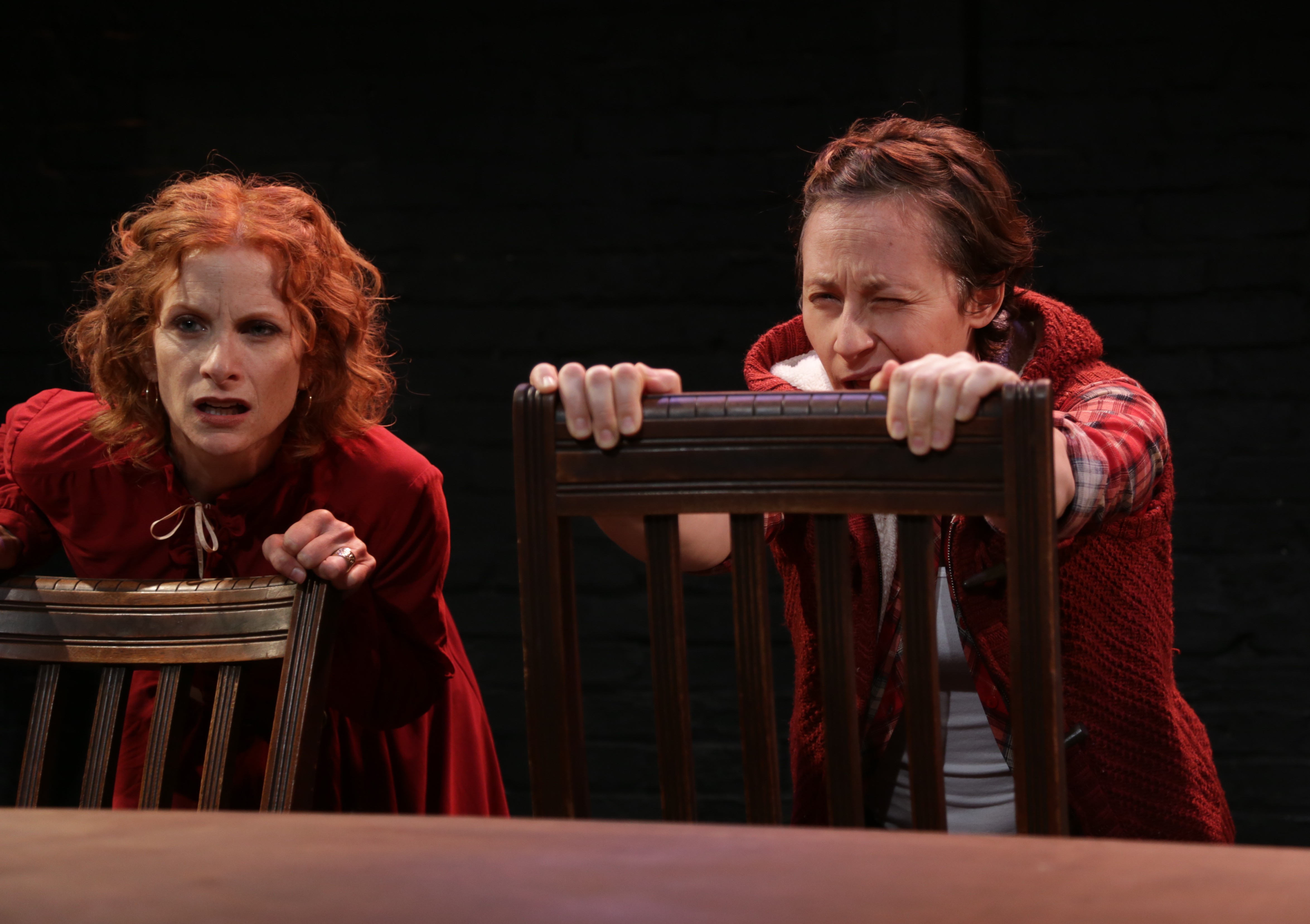Kate Benson’s A Beautiful Day in November On the Banks of the Greatest of the Great Lakes takes place on Thanksgiving and revolves around a family’s collective preparation of the traditional holiday meal. Don’t expect to see turkey, cranberries or pumpkin pie, or even dishes, napkins and cookware. If you want any of that, you’ll have to imagine your own.
Performed by a game ensemble under the direction of Laramie Dennis at Theatre of NOTE, Benson’s odd little play eschews the usual props — and in fact, there are none. The action takes place at a long table extending much of the length of the small venue. Off to the side, two sportscasters (Christopher Neiman and Kjai Block) narrate the proceedings with the hyped and edgy vocals you might hear commentating a baseball or football or basketball or tennis game. The family members we first meet are three middle-aged sisters: Cheesecake (Sarah Lilly), Cherry Pie (Tegan Ashton Cohan) and Trifle (Debbie Jaffe), whose first order of business is to assemble a round table to accommodate the entire family of adults. This is not accomplished literally; instead it’s expressed with random gestures and facial expressions. The narrators follow the action (such as it is) and report to us as if we’re in the ninth inning of a baseball game with the score tied and three men on base.
As we move further into the play, the tasks segue into the cooking of the turkey and the preparation of the roue. Other family members arrive, including Snapdragon (Judith Ann Levitt), the sisters’ blind meddlesome mother, and Grandada (John MacKane), hard-of-hearing and mostly lost in his own world. Performers Robin Light and David Bickford are cast in multiple roles that are often hard to distinguish, one from the other, because of the staging, but Bickford is especially entertaining as the sort of cantankerous narrow-minded relative or acquaintance you keep at a distance at these events — it really doesn't matter that his role is marginal to the story.
In fact, the pleasures of this production are chiefly in the performances, commendably disciplined and entertaining in varying degrees. The comic hook — recounting a banal family event as if it were some sort of sports spectacular — is a joke that wears thin. And while there are identifiable clashes between mothers and daughters that grab one’s attention, along with a bizarre and unexpected ending, this isn’t the sort of play that makes much of an emotional impression. It’s rather more like a dramaturgical experiment on the writer’s part — an attempt to actively enlist the audience’s imagination in realizing the narrative. I’m not sure the effort is entirely a success.








